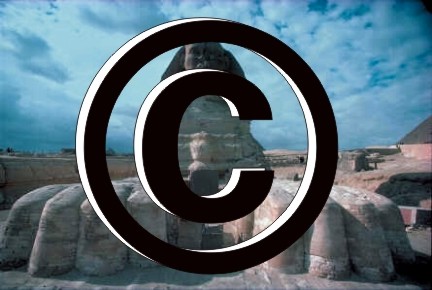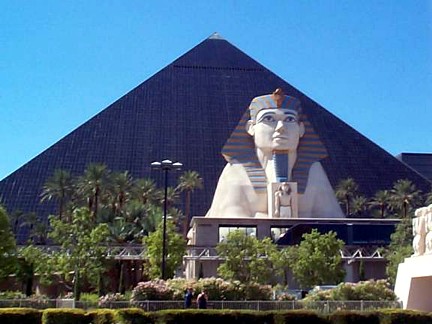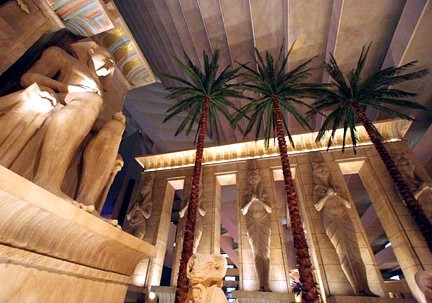El CopyRE
El Canon de la momia empiezan a llamarlo y, a mi, no me parece mal si es que consiguen hacerle llegar a su autor el dinero recaudado. Pero mucho me temo que va ser un poco difícil, ya que el artista murió hace más de 4.500 años.
Fue a finales del siglo XVIII con la llegada a Egipto de exploradores europeos, cuando empezaron los egipcios a saber el valor del legado de sus idólatras antepasados, y decidieron parar el desmantelamiento sistemático de las pirámides y templos faraónicos, que se estaban reutilizando para la construcción de edificios en las ciudades actuales, como podemos ver en El Cairo, Giza fue cantera fácil y barata durante siglos. La egiptomanía que surgió en Europa en el siglo XIX salvó la memoria faraónica.
El turismo sigue siendo la primera industria del país, o quizás, la única. Y medidas recientes como la prohibición de hacer fotos en los monumentos, en los museos, etc. Estén secando la fuente, ese pozo que te desean, se mantenga siempre lleno de agua, como gesto de amistad los egipcios cuando visitas su país; El don del Nilo.
(1) Egipto quiere legalizar un copyright para antigüedades (EFE, El Cairo)
Sería el primer caso de copyright retroactivo del mundo, donde un gobierno se beneficia de obras creadas hace miles de años.
El derecho de copia o Copyright regula la capacidad legal de reproducir o utilizar creaciones originales (artísticas, musicales, literarias, etc.) sin el permiso o el beneficio del autor. Se impuso para que los creadores e inventores pudieran vivir de su producción artística, explotando sus creaciones durante un periodo de tiempo razonable.
Ese periodo ha pasado de los 17 años iniciales a 95. Lo que no había ocurrido aún era el copyright retroactivo, donde un gobierno mantiene el control sobre la copia de piezas de miles de años de antigüedad. Esa propuesta, que separaría por completo el Copyright del concepto de derecho de autor, está a punto de hacerse realidad en Egipto.
El Consejo Supremo de Antigüedades (CSA) de Egipto ha instado al Parlamento a que acelere los trámites para aprobar una nueva ley que prohíbe hacer réplicas exactas de cualquier antigüedad egipcia sin el permiso previo de las autoridades.
"Una gran fuente de divisas para el país"
El secretario general del CSA, Zahi Hawas, afirmó, en una entrevista publicada hoy por el diario opositor egipcio "Al Wafd", que la nueva ley tiene el objetivo de proteger para Egipto el "copyright", o derechos de autor, de antigüedades egipcias.
La normativa propuesta incluye una cláusula que obliga a quien haga una réplica de dimensiones iguales al original a solicitar de Egipto la autorización previa y a pagar por ésta.
Según Hawas, la ley actual, que data de 1983, no prohíbe de ninguna manera la copia de las antigüedades egipcias en el interior ni en el exterior del país. Hawas argumenta que la medida podría ser una gran fuente de divisas para el país.
Fuente: EFE, El Cairo / ADN.es, 25 de diciembre de 2007
(2) Egypt to copyright pyramids
In a potential blow to themed resorts from Vegas to Tokyo, Egypt is to pass a law requiring payment of royalties whenever its ancient monuments, from the pyramids to the sphinx, are reproduced.
Zahi Hawass, the charismatic and controversial head of Egypts Supreme Council of Antiquities, told AFP on Tuesday that the move was necessary to pay for the upkeep of the countrys thousands of pharaonic sites.
"The new law will completely prohibit the duplication of historic Egyptian monuments which the Supreme Council of Antiquities considers 100-percent copies," he said.
"If the law is passed then it will be applied in all countries of the world so that we can protect our interests," Hawass said.
He said that a ministerial committee had already agreed on the law which should be passed in the next parliamentary session, while insisting the move would not hurt Egyptian artisans.
"It is Egypts right to be the only copyright owner for these monuments in order to benefit financially so we can restore, preserve and protect Egyptian monuments."
However, the law "does not forbid local or international artists from profiting from drawings and other reproductions of pharaonic and Egyptian monuments from all eras -- as long as they dont make exact copies."
"Artists have the right to be inspired by everything that surrounds them, including monuments," he said.
Asked about the potential impact on the monumental Luxor Hotel in the US gambling capital of Las Vegas, Hawass insisted that particular resort was "not an exact copy of pharaonic monuments despite the fact its in the shape of a pyramid."
Fotos: Exterior e interior del Hotel Luxor en Las Vegas, Nevada (USA)
On its website, the luxury hotel describes itself as "the only pyramid shaped building in the world," but Hawass said its interior was entirely different from an ancient Egyptian setting.
Hawasss declarations came after the opposition daily Al-Wafd published an article on Sunday called for the Las Vegas hotel to pay a slice of its lodging and gambling profits to the city of Luxor.
"Thirty-five million tourists visit Las Vegas to see the reproduction of Luxor city while only six million visit the real Egyptian city of Luxor," the paper lamented.
Samir Farag, head of Luxor town council in southern Egypt, home to the legendary Valley of the Kings, said that it would be difficult to prohibit use of pyramid shapes.
"We cant forbid people from using the name of Luxor and copying monuments from (Luxor) city, which is the worlds richest city for monuments," he said, adding that "tourists going to Las Vegas doesnt affect our citys business."
Source: Rayad Abou Awad, AFP, Cairo. Tue Dec 25 2007



0 comentarios